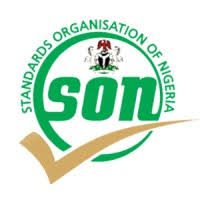
FG threatens to sanction CCECC over rail contract
By Seun Ibiyemi
The Minister of Transportation, Alhaji Mu’azu Sambo, has threatened to sanction the China Civil Engineering Construction Corporation (CCECC) for not meeting up with the contract of providing 85 per cent of rail project cost.
Sambo made this known at the inspection of the Lekki Deep Seaport on Saturday in Lagos.
According to Sambo, the projects are the Kano-kaduna and the Maiduguri-Port Harcourt rail lines.
“The CCECC have not brought anything to the table, I gave them a deadline which is Oct. 30, if I don’t get that money on ground, I know what to advise Mr President to do,” he said.
Sambo who expressed satisfaction on the Lekki Deep Seaport project noted that initiatives were on ground to ensure smooth evacuation of cargo at the port.
He said that for part-time, the road was being expanded, adding that government was looking into it, and for medium-term, barges would take care of it.
“I am impressed and happy to be back here. This we know is the pride of all Nigerians, first deep sea port in West Africa that will take the largest ship in the world, have 16.5 meters deep and will give us hundreds and thousands of jobs.
“Almost automated not fully but automated enough to make life easy for port operations.
“It is initiatives like this we want to encourage, that is why I did not hesitate when I came to the ministry and I saw a proposal of the Badagry Deep Seaport sitting on my table and took it immediately for approval.
“Also, the president is concerned about cargo evacuation at the port and does not want a repeat of the Apapa and TinCan port and so we cannot rely on the road alone which is not the best option.
“There is a need to sit down with stakeholders to see how to tackle this,” he said.
He pointed out that cargo evacuation was not just within the port but outside the port, as goods must reach the final destination.
“First of all, you save a lot of time at the port because of automation and modern technology and equipment.
“After the port what happens, it only make sense when the goods get to the shipper or owner. And to do that, you need to move either by rail, water or road,” he said.
Sambo urged the management of the port to employ as many Nigerians as possible as this was the only way citizens could put food on the table for their families.
The Managing Director, Nigerian Ports Authority (NPA), Mr Mohammed Bello-Koko, noted that the Lekki Deep Seaport was one of the first solution to reducing traffic at Apapa and TinCan.
According to Bello-Koko, the automation deployed at the port is commendable and fantastic as the processes will be free of human interference.
He said that the Apapa and TinCan port would still be viable, adding that what they had done was to create alternative for importers and exporters as to where they would decide to do business.
“The operators of those ports should also up their game, and improve their speed in terms of cargo clearance or otherwise.
“Feasibility study have shown that these ports will still be viable in future like, 10, 15 years, government can decide to turn some of these ports into a real estate, we have some of them in Europe,” Bello-Koko said.
Mr Du Ruogang, the Managing Director, Lekki Port LFTZ Enterprise Ltd. (Lekki Port), said that the port was 95 per cent completed, adding that they would meet the targeted time.
Ruogang appreciated the NPA for deploying marine services such as tug, pilot, lines, boats and harbour master before the operations of the port.



